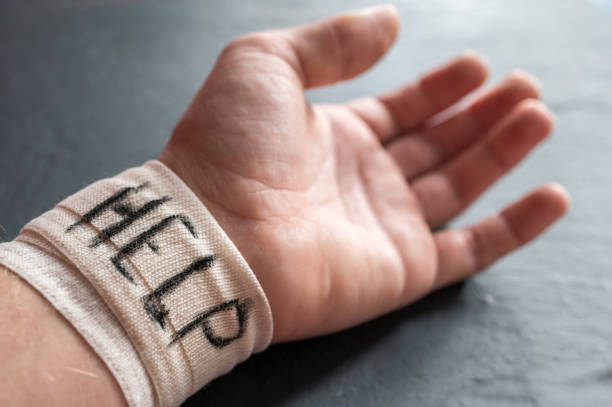Shimbo Pastory
This article was published in The Citizen Newspaper – Tanzania on 24th May 2022.
Self-harm has gained so much prominence through the years as an easier way of escaping the miseries and troubles of life or the disturbances of the moment. Self-harm is a result of the desire or pressure to transform emotional pain into something else; oftentimes it is changed into physical pain.
According to experts, overwhelming feelings of loneliness, painful memories, traumatic experiences, negative life events, stresses and anxiety can result in self-harm. It may be a one-time act such as attempted hanging, a regular act such as self-poisoning or skin-cutting incidences, or a serial act like the use of drugs.
People who inflict pain on themselves by punching, scratching, hitting, use of poisonous chemicals and poisons, excessive exercise under the umbrella of fitness, deliberate starvation, drugs, body cutting, piercing, etc. need help, and it should not be taken as a normal way of living. People who find pleasure in painful situations or activities are called ‘masochists.’

On several occasions when we hear about suicide victims’ last experiences we get a feeling that many of them did not want anyone to know what was going to happen. They seldom look sad or depressed. This they do avoid ‘unnecessary’ attention from people around them. It is because of such mysteries around acts of self-harm that people often attribute them to spiritual causes, witchcraft, curses, bad luck, karma, etc.
Moreover, self-harm has no particular age as such strains can fall on anybody and have a lasting impact on them regardless of age, gender, or economic/financial situation.
Self-harm among young people
Among young people, research suggests that self-harm is often triggered by self-hate. Self-hate is more common in young adults than among full adults. This is a result of negative responses from parents, guardians, teachers, or peers who make them feel they are not good enough, have no good looks, or are not attractive, or fashionable.
In addition, many young people find it difficult to cope with lack, rejection, correction, admonition, break-ups and rules. When these happen and one sees no possible way of escaping them they can easily lose meaning and resolve in what serves them no good.
Meanwhile, competition to fit in the vibe of the moment can completely alter the way young people look at themselves. It can make them joyful heroes or agonizing and anxiety-filled failures.
Because of maintaining status and friends, young people become vulnerable to group pressure towards drugs, excessive drinking, smoking, burglary, truancy at school, promiscuity, and many other things. These acts affect the way these young people respond to duties, authorities and orders, and also lay the foundation for habitual self-harm in the future.
Even though the problem of self-harm is serious, statistics are not reliable as many cases are handled in private at personal and family levels and hardly reach the hands of professionals. Out of goodwill parents may not willingly report such incidences and behaviours by their children for good.

Young people should be advised to have good friends. Inquiring about your child’s friends is not an intrusion. At the same time, parents and guardians need to build a friendly bond with their children such that they feel free to share what they go through in their lives. Sometimes it takes just a piece of advice to prevent a deadly incident.
Self-harm among adults
There are numerous cases of adults who lose it later in life. Responsibilities, debts, complications of relationships, loss of loved ones, lack of fulfilment, workplace stresses, diseases, and acquired impairments are among the things that lead to self-harm.
Seeking to flee from the stress one may fall into excessive drinking as well as drugs. Feeling that life demands too much, one may fall into suicidal thoughts, and sometimes both suicidal and murder thoughts as they feel that other people, especially children are the major cause of their misery.
What society can do
It is an incontestable fact that everyone is vulnerable to such situations that may result in deliberate self-harm. We need keen eyes to spot any signs that one is losing hope and desire to live. Most such cases can be prevented, and victims can be assisted not to go back into the same thing again.
Together with that, there is a need for a formalized programme which will raise awareness regarding self-harm and which will also provide support for recovering victims of self-harm. Suicide and substance dependence takes away good people from us, we need a collective effort to stand and help people get out of the vicious cycle of self-harm.
